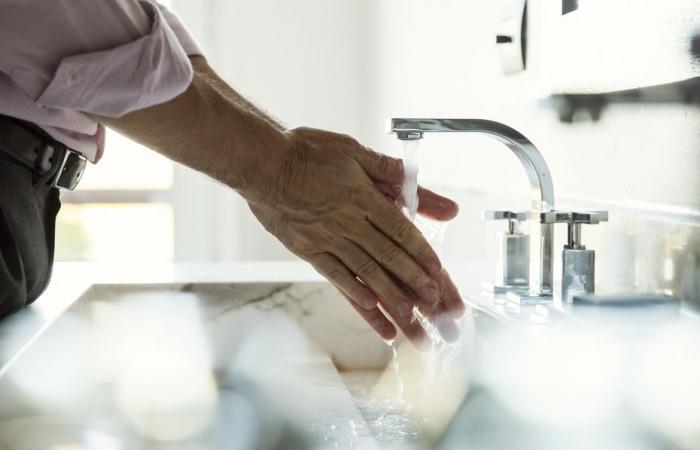This Tuesday, October 15, is World Handwashing Day. To reduce the transmission of viruses and limit infections such as Covid, flu, gastro, this barrier gesture is essential. For what ? And how to do it effectively? Answer here.
Company
From daily life to major issues, discover the subjects that make up local society, such as justice, education, health and family.
France Télévisions uses your email address to send you the “Society” newsletter. You can unsubscribe at any time via the link at the bottom of this newsletter. Our privacy policy
Covid-19 flu gastro lWashing your hands with soap and water is THE most effective hygiene measure to prevent the transmission of ALL winter viruses.
Daily hand hygiene is a defense against everyday infections. Indeed, whether they are viral or bacterial conditions, they have in common that they are transmitted from individual to individual via the hands. We touch hundreds of things every day, including real bacteria nests, we put them in our mouths, our faces, we rub our eyes with them: “On average, our hand comes into contact with our face up to 3,000 times a day”according to the Normandy Regional Health Agency.
“Some ‘germs’ (a generic term for microbes such as viruses and bacteria) can be easily spread by touching another person.”recalls the ARS. “You can also come into contact with germs if you touch contaminated objects or surfaces before touching your face, particularly your mouth, eyes, nose.”
You must systematically wash your hands with water and soap (preferably liquid) or, failing that, with a hydroalcoholic solution:
- Before preparing food.
- Before and after caring for a baby. Babies tend to grab everything that is lying around: “Infant bronchiolitis, for example, is a benign infection. But it can be avoided thanks to simple hygiene precautions”recalls the ARS.
- When leaving public transport. This may seem obvious, but in reality not everyone does it. An Ifop study published in February 2020 revealed that less than a third of men wash their hands after taking public transport compared to 42% of women.
- After going to the toilet: this same study shows that barely two out of three men (68%) wash their hands systematically after going to the toilet (compared to 75% of women).
- After blowing your nose, coughing or sneezing, after visiting a sick person,
- After each outdoor outing: in public places in general, be careful with supermarket shopping carts, elevator buttons, etc.
- When arriving at the office or home.
ARS warns that germs are really everywhere : “The mobile phone, where there are no less than 20,900 microbes per cm², computer keyboard, mouse… So much equipment that we rarely clean. A small figure to see: the office table would contain 3,249 bacteria per cm² compared to 8 bacteria per cm²;
Little tip: make sure you have an antibacterial gel with you.
The World Health Organization reminds us of these few instructions to ensure that you have successfully washed your hands:
- Hands should be washed with soap and water (preferably liquid).
- Hand washing should last at least 30 seconds.
- Rub nails, fingertips, palms and outsides of hands, knuckles and wrists well.
- You should dry your hands with a clean towel or in the open air.
- A hydroalcoholic solution can also be used on unsoiled hands.






